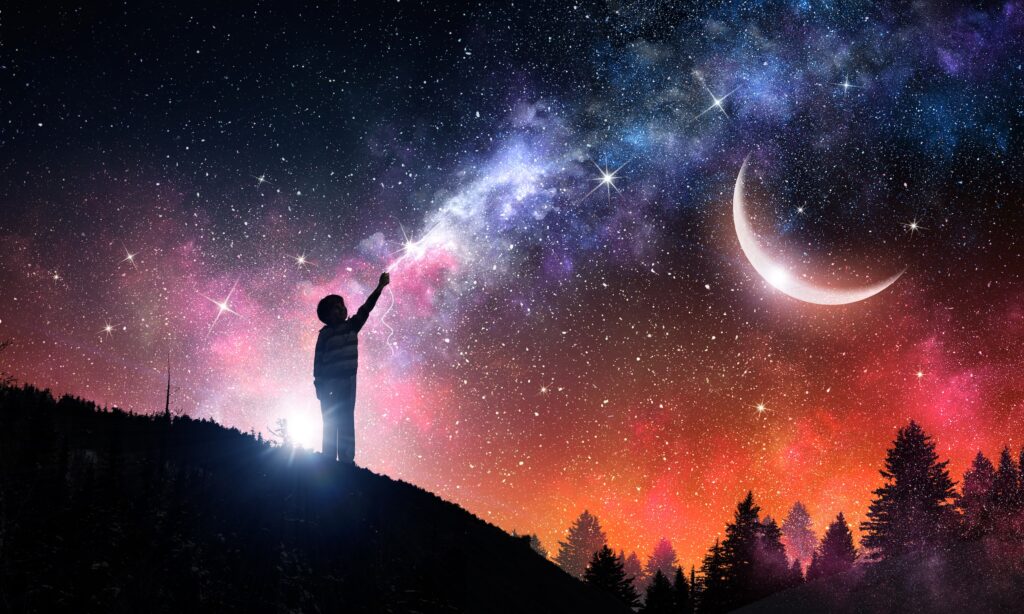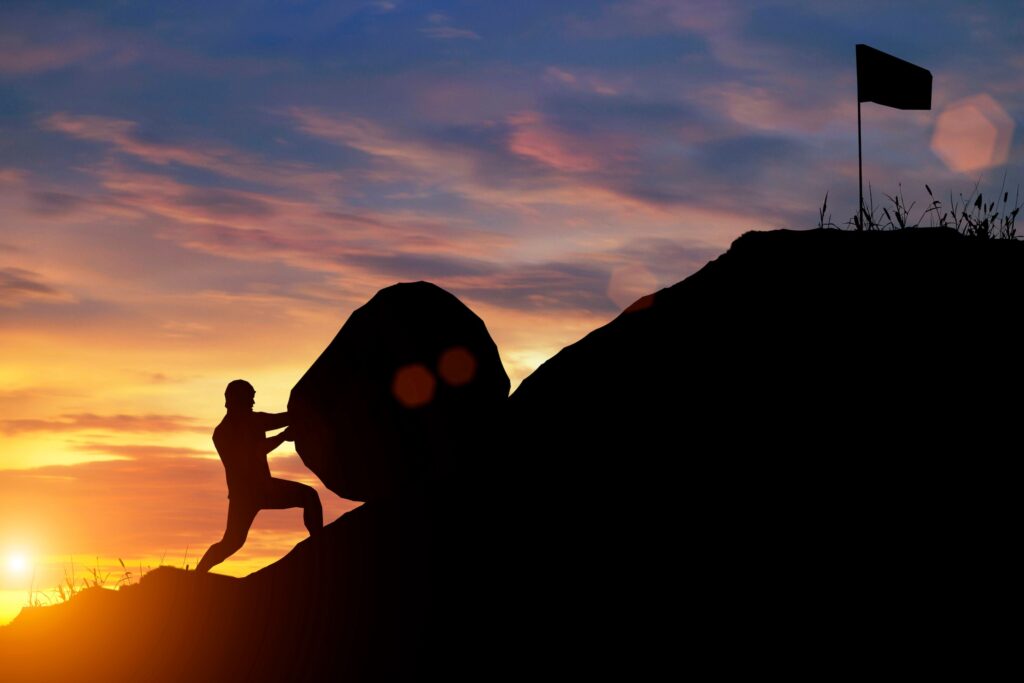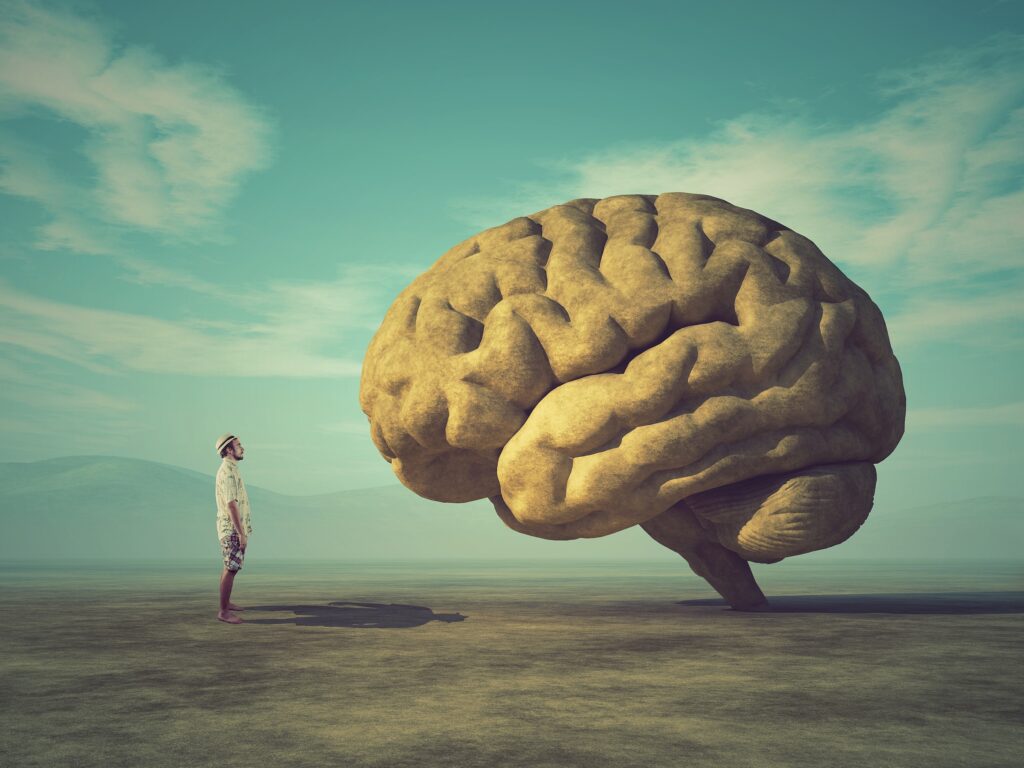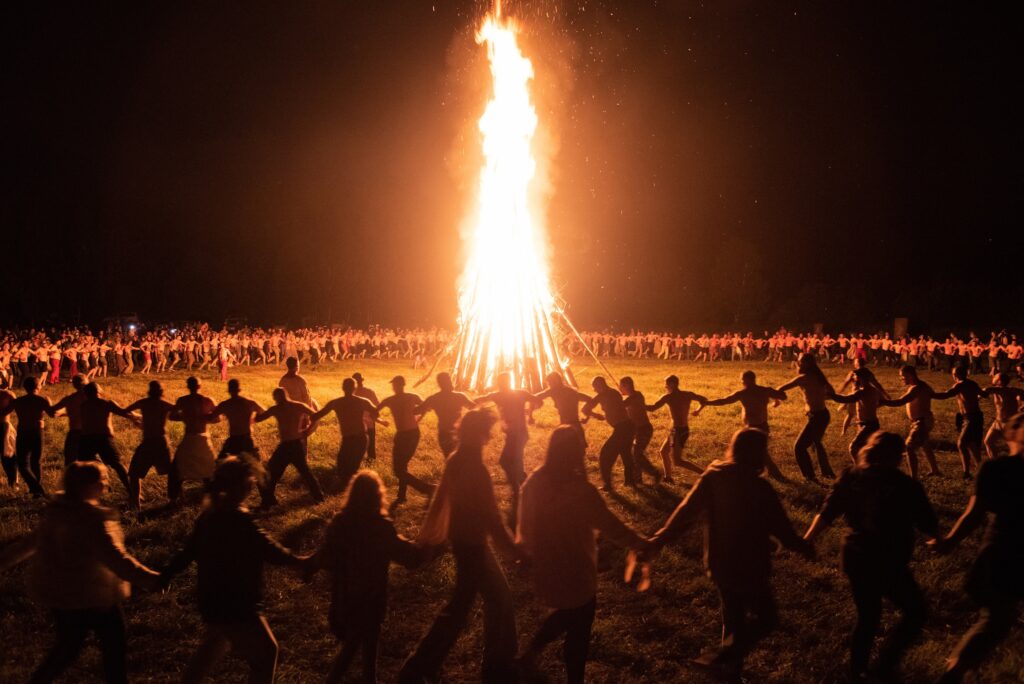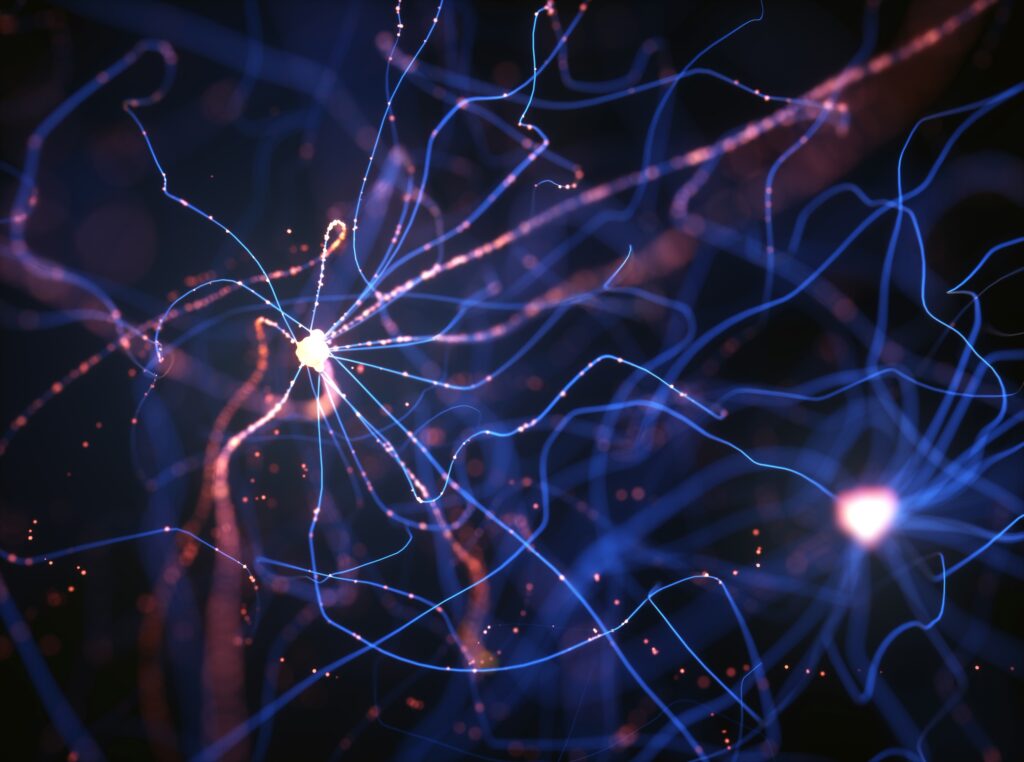Finding new paths
Reading | Philosophy
![]() Fred Matser | 2023-10-22
Fred Matser | 2023-10-22
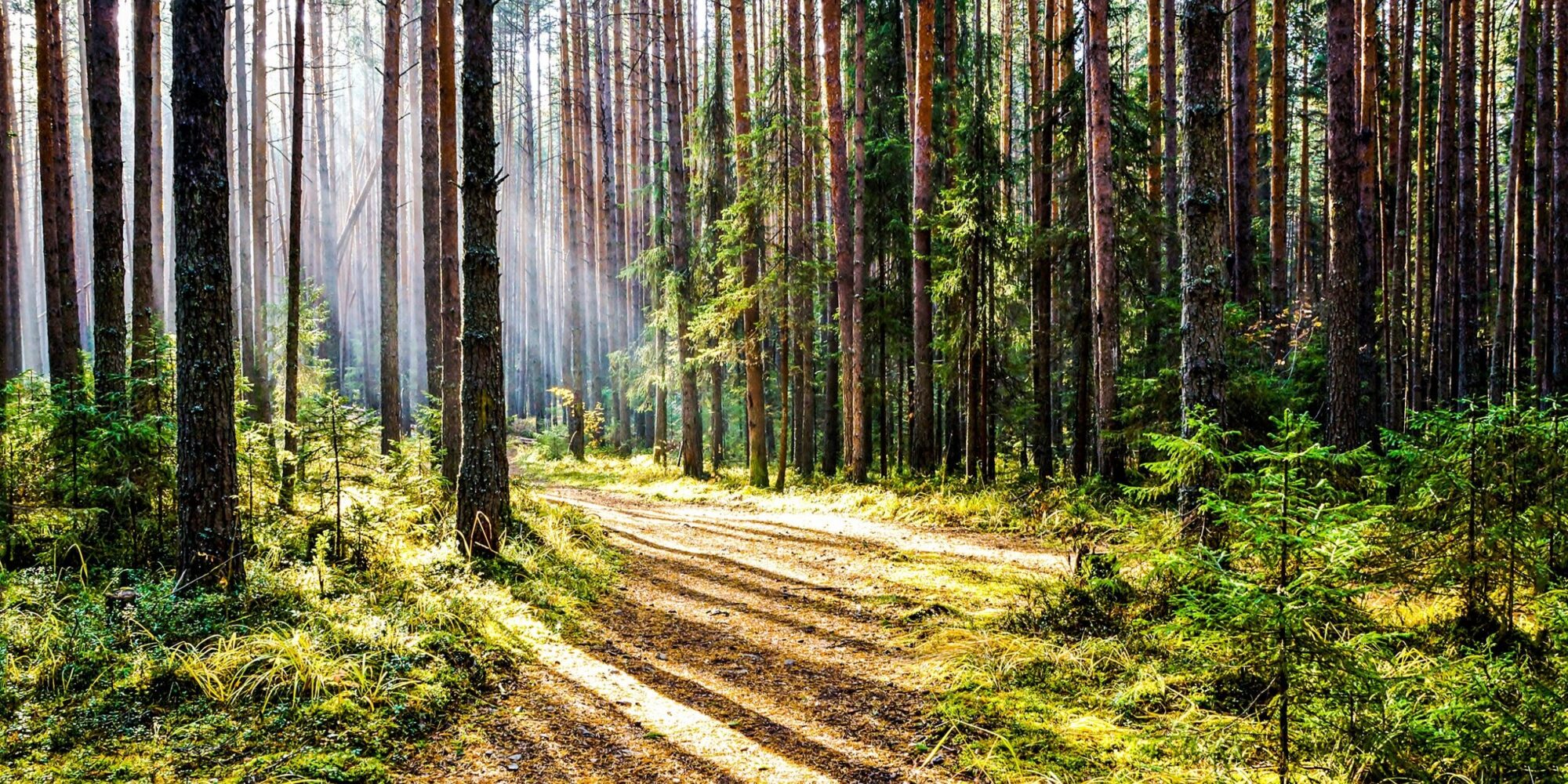
Our founder and chairman invites us to look at the world from new perspectives, under new angles, so to see through the artificial constraints imposed by culture and habit, and devise functional paths forward. This essay is part of the book Beyond Us.
It has become trite to say that ordinary human life has changed much since the time of our prehistoric ancestors. Nonetheless, I feel that most people today don’t actually realize the sheer extent and repercussions of these changes, which have crept into our lives over the centuries. Back in our prehistory, our ancestors’ inner lives were directly integrated with their outer, natural environment. There were no roads, sidewalks, street signs, or even demarcated trails, let alone GPS navigation. Every morning, as our ancestors awoke to go about their activities, a new adventure, a new exploration—quite literally—would begin through uncharted territory. They would have to sense and find their ways in their environment in a manner that has become unimaginable today.
Our ancestors had freedom in a sense lost to us. Now we follow roads, obey street signs and traffic rules, type in addresses in our phones. Every step we take, or kilometer we drive, is one already taken or driven countless other times by countless other humans. To say that we constrain ourselves to beaten paths doesn’t begin to capture the restrictiveness of our situation, or its claustrophobic ethos. Our ways have become fully standardized, as opposed to spontaneous; driven by security and convenience, as opposed to curiosity and wonderment. Life has turned into a business, instead of an adventurous exploration.
Through the course of human history, going about the world has acquired a totally new meaning: now it has nothing anymore to do with interacting—in the true sense of the word—with our natural environment; we hardly sense it, negotiate with it, learn from it, or abide by it. We hardly even notice it. Going about the world today is merely a means to an end: it’s about the destination, not the journey. If we could just teleport from one place to the other, so much the better. But since teleporters are still just science fiction, we’ve done the next best ‘civilized’ thing: we insulate ourselves from our natural environment. We use highways and roofed cars, as opposed to putting our feet on the ground, in the dirt or water, feeling the wind and the warmth of the sun on our skin, smelling the scent of wet earth after the rain.
Our early ancestors, unguided by streets or addresses, had to sense their way through virgin terrain, often never stepped on by another human. The world lay before them as countless possible paths, countless possible interactions, countless ways of seeing and being in the world. To know where they were and where to go next, our early ancestors looked at the position of the sun and other stars, sensed the direction of the wind, became acquainted with natural landmarks and vegetation, observed the behavior of other animals. They were attuned to their environment through senses that have become atrophied in us, for sheer lack of use. For them, it wasn’t all about the destination; it was about a relationship with the world where they were born, and which sustained their lives. Journeys for them were—instinctively—about new discoveries, new ways to relate, new experiences.
But now we no longer experience the richness of our ancestors’ relationship with the world. In the name of safety, efficiency and convenience, we built—and continue to build—cages around ourselves; not only in the form of cars, houses and clothes, but also in the form of those ubiquitous standardized paths. Moreover—and perhaps most critically—this self-imposed confinement is both literal and figurative.
Indeed, as we physically confine ourselves to streets, highways and marked trails, we also mentally and emotionally confine ourselves to standardized ways of thinking and feeling. Human society offers us—in the form of culture—a menu of possibilities: liberalism, conservatism, materialism, spiritualism, communism, socialism, libertarianism and many other ‘isms.’ Each option entails a recipe—endorsed by the authority of labels and groups—for how to think and feel ‘properly.’ These are mental roads, so to speak, defined by words and to which we adhere as carefully as we adhere to the boundaries of a highway. They are tried, tested and therefore vouchsafed. God forbid we deviate from these standardized ways, for then we could lose the protection—and acceptance—of the group.
Without the reassurance we get from the echo chamber of group thinking, we might even question the validity of our own spontaneous feelings and intuitions. So we willingly forfeit our individuality—the unique and original way we have to spontaneously relate to the world, created by nature through billions of years of effort—for the sake of belonging, comfort and safety. As a result, the human adventure becomes more and more impoverished. Its bright original colors turn into bland pastels and, eventually, a mere greyscale. In some places and historical junctures, they have even turned into black and white. This is the tragedy of our situation.
Sometimes we can intuit the original richness and spaciousness of our ancestors’ relationship with the world: have you ever noticed that, while hiking in nature, if you return from the hike along the same trail you used on the way over, you experience the trail in a completely different way? It’s as though it were a different path. And this happens simply because you turned around to look back, instead of forward. Imagine in how many different ways we could experience a little piece of nature if we left the trail altogether, to explore it along different angles? Imagine in how many different ways we could experience life if we departed from the ‘isms’ altogether, and looked upon life according to our own spontaneous, idiosyncratic vantage points? Alas, these days it is hardly possible to be ‘off road’ at whatever level or manner.
This is not to say that all paths are enriching. There are functional and dysfunctional paths, both literally and figuratively. Just as some trails lead us to the edge of an abyss, some ways of thinking are detrimental to life and world alike. But the point is that we lost our freedom to explore, to make uncontrolled choices. We’ve experienced some of this freedom when we were children. And largely thanks to the richness of that relatively unconstrained interaction with the world, which fed our souls in ways we cannot verbalize, our consciousness developed. But as adults, the opportunities for further development of consciousness become restricted by physical and mental roads and maps. We are not expected to find and experience original ways to think, feel and live. Instead, we are expected to conform to the standards available, including the reigning value-system of our culture.
By conforming we doubtlessly increase our safety and comfort. But we also become numb to our outer and inner natures and their unfathomable degrees of freedom. Instead of exploring the world we were born into, our lives turn into repetitive routines and formulas that fail to enrich us. Again and again we go around the same circle, to the point we become only half alive. We do live longer, but a kind of life more akin to surviving than thriving. Senses we originally had as children—a kind of subliminal intuition on the border of perception—become atrophied. And without these senses, our ability to notice and pursue original, functional paths in life becomes diminished. We then find ourselves in a vicious cycle: by constraining ourselves to the standard paths, we lose the very intuitive senses that would allow us to pursue other, original, spontaneous paths. This, regrettably, is the reality we find ourselves in today.
So what can we do? How can we change? Simple things, surprisingly enough, may make all the difference. For instance, a simple daily meditation can help slow our minds, so we are present to the possibilities of the moment in our natural, peaceful state of being. Doing this daily can help wean us off our overwhelming addiction to the businesses and transactions of the anthropocentric world. Moreover, spending more time in nature contributes to wellness and wholeness as well. It re-grounds us in the matrix of our ancestral being, helping us recover lost perspectives.

Essentia Foundation communicates, in an accessible but rigorous manner, the latest results in science and philosophy that point to the mental nature of reality. We are committed to strict, academic-level curation of the material we publish.
Recently published
Reading
Essays
Seeing
Videos
Let us build the future of our culture together
Essentia Foundation is a registered non-profit committed to making its content as accessible as possible. Therefore, we depend on contributions from people like you to continue to do our work. There are many ways to contribute.







